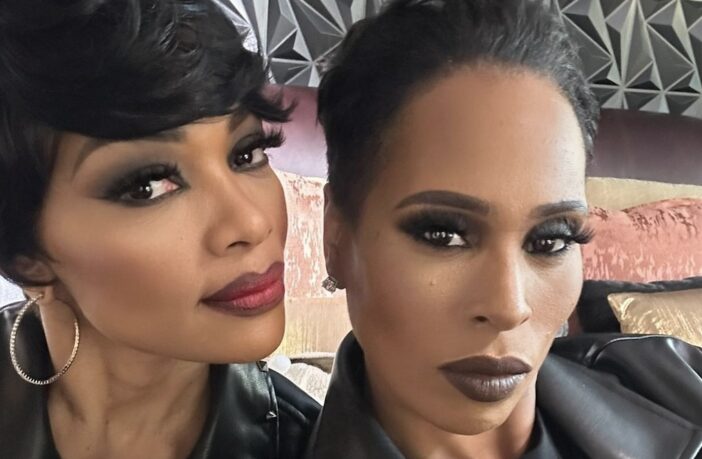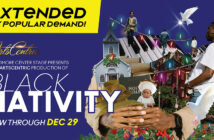Rhonda Morman and Malika Blessing share a joyful selfie moment on the set of “Wicked City.” (Courtesy Photo)
From the thrill of the theater to the spellbinding allure of television, Malika Blessing and Rhonda Morman, Los Angeles natives and long-time friends, have brought their electrifying chemistry to the supernatural series “Wicked City” on ALLBLK. Their journey from performing in local theater productions, such as The Conversation (2015), to starring in pivotal roles in this genre-bending series reflects not just personal triumph but also an important stride in representing diverse voices in media.
Malika Blessing, a seasoned actress from Oakland, California, with a master’s degree in Theater Arts from Grambling State University, transitioned from local theater productions to significant television roles, bringing depth and authenticity to her character, Caden, on “Wicked City.” Her experience in theater, characterized by roles in productions like Don B. Welch’s “The Lost Souls Cafe” and the horror film “Grim Weaver,” has honed her skills in storytelling and character portrayal.
Rhonda Morman, also an L.A. native, has been a force in the theater world, known for her role in the NAACP award-winning stage play “Sunday Mourning.” Her background in theater profoundly influences her approach to television, where she portrays the powerful witch Claudette LeNoir in “Wicked City.” Her directorial debut with “His Dreams Her Goals” and roles in films and TV shows like “The Lost Souls Cafe” and “Sister Swap: Christmas in the City” highlight her versatile talents.
As “Wicked City” enters its third season, viewers can anticipate a deeper exploration of dark themes and complex relationships, underscored by the dynamic performances of Blessing and Morman. Their real-life friendship enriches their on-screen sisterhood, bringing a genuine, palpable dynamic to their roles.
Related Links:
In Their Own Words: A Conversation with Malika and Rhonda
During a candid discussion, both actresses shared insights into their characters and the broader impact of the series on diversifying the horror genre:
L.A. Sentinel: How has your background in local theatre influenced your approach to acting in television, particularly in a genre-specific series like “Wicked City?”
Rhonda Morman: My background in local theatre has profoundly shaped my approach to acting in television, especially in a genre-specific series like Wicked City, where I have the opportunity to play the powerful witch Claudette LeNoir. I’ve learned to connect with my audience and convey complex emotions, which is essential for portraying a character with as much depth and nuance as a Claudette. This role required me to tap into a sense of power and mystique, something that is often amplified in theatre through vocal projection and physicality. Moreover, being nominated for the NAACP Theatre Awards reinforced my commitment to portraying strong, multifaceted characters. Ultimately, my theatre background provides a robust foundation that enhances my ability to create memorable performances in television, especially in a genre that thrives on powerful storytelling and character dynamics.
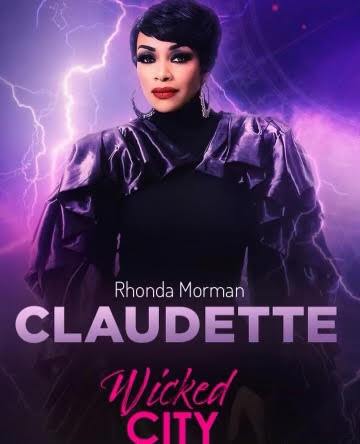 Rhonda Morman channels her character Claudette in a candid capture from “Wicked City.” (Courtesy Photo)
Rhonda Morman channels her character Claudette in a candid capture from “Wicked City.” (Courtesy Photo)
MB: Working in theater gave me a strong foundation teaching me the importance of discipline, collaboration, and resilience. Producing plays also sharpened my understanding of storytelling from both a creative and logistical standpoint, which has been invaluable in my acting career. Now, with “Wicked City”, I feel like everything I’ve learned on stage and behind the scenes has prepared me for this moment. It’s been a journey of persistence, passion, and embracing every opportunity to grow.
LAS: In your view, what impact does “Wicked City” have on diversifying the horror genre, especially regarding African American representation?
RM: “Wicked City” plays a pivotal role in diversifying the horror genre by showcasing not only African American characters but also characters of the global African Diaspora in ways that go beyond stereotypes. The series also embraces elements of African American culture and experiences, blending them seamlessly into the supernatural world. “Wicked City” demonstrates that diverse storytelling can enrich the genre, making it more inclusive, relevant, and thrilling for all audiences.
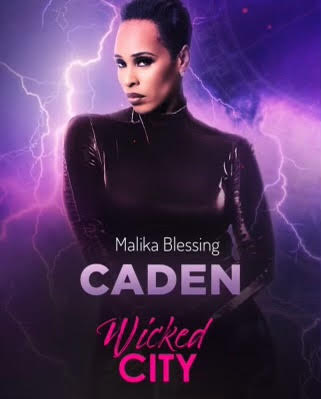 Malika Blessing embodies her role as Caden, captured here on the set of “Wicked City.” (Courtesy Photo)
Malika Blessing embodies her role as Caden, captured here on the set of “Wicked City.” (Courtesy Photo)
LAS: What inspired you to transition from theater to television, and how has your theatrical background influenced your performance in “Wicked City?”
MB: As a NAACP Theater Award nominee and Host, transitioning from theater to television felt like a natural progression for me. Theater gave me a deep appreciation for storytelling, character development, and the discipline to fully immerse myself in a role, night after night. When the opportunity to play Caden in “Wicked City”“ came along, I was drawn to the depth of the character and the layered storytelling television offers.
LAS: What do you believe “Wicked City” contributes to the conversation about diversity in horror and supernatural narratives?
RM: “Wicked City” adds to the conversation about diversity in supernatural narratives by showcasing Black characters in powerful, supernatural roles that have often been underrepresented in horror. “Wicked City” breaks that mold by giving complex, dynamic roles to Black actors, allowing us to be fully realized characters who are both magical and multi-dimensional. This representation speaks to the creativity, resilience, and power within the Black community and creates new icons within the genre. Horror and supernatural stories hold a mirror to society’s fears and desires, and by including Black characters in these narratives, “Wicked City” broadens the scope of who can be seen as a hero, villain, or mystical being.
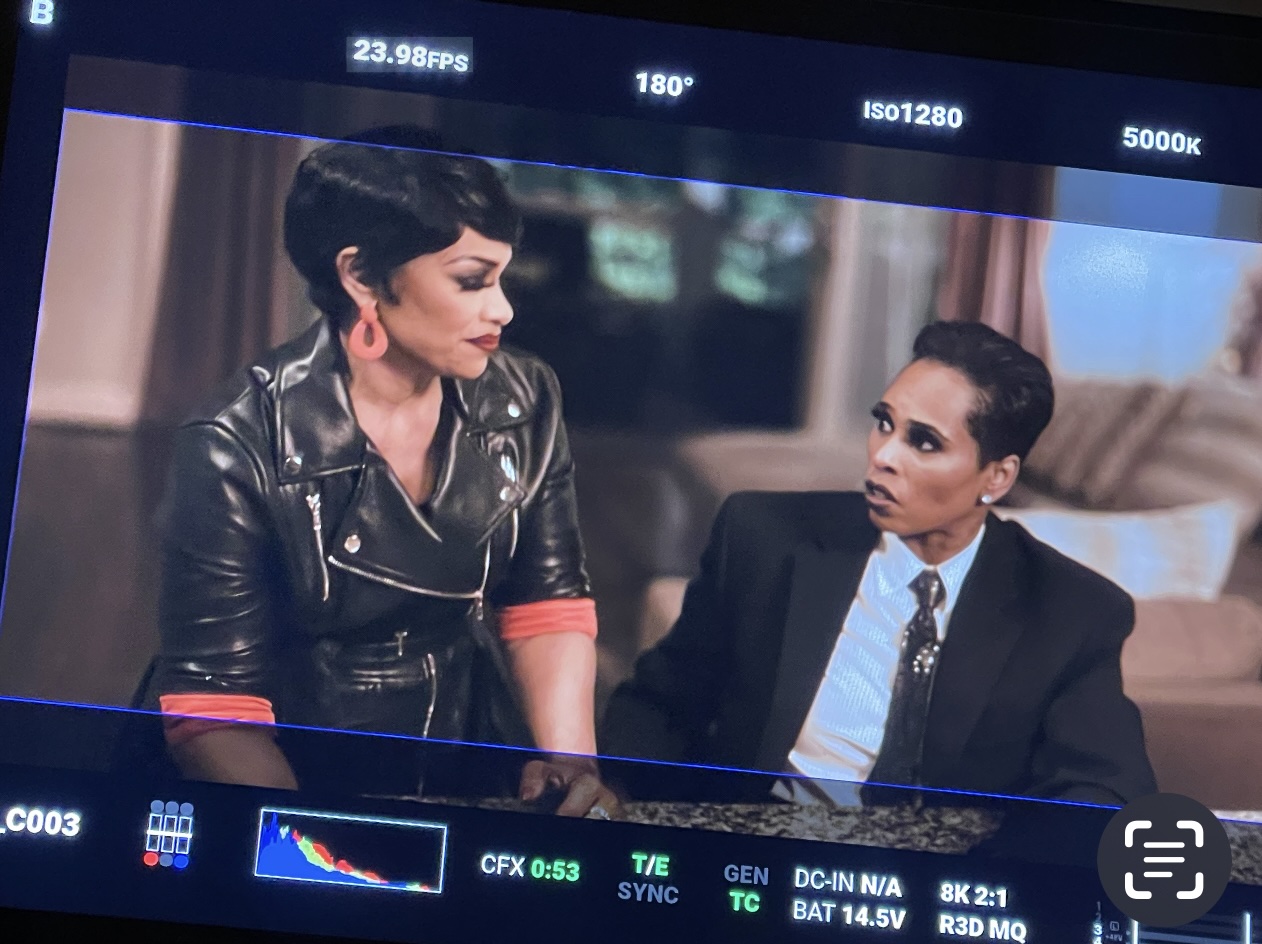 Behind-the-scenes with Rhonda Morman and Malika Blessing during a “Wicked City” shoot. (Courtesy Photo)
Behind-the-scenes with Rhonda Morman and Malika Blessing during a “Wicked City” shoot. (Courtesy Photo)
LAS: How has your real-life friendship with Rhonda Morman influenced your on-screen dynamics?
MB: Working alongside Rhonda Morman on “Wicked City” has been an incredible blessing, and our real-life friendship definitely adds a special layer to our on-screen dynamics. There’s a natural chemistry and trust between us that allows us to be fully present in our scenes. We understand each other’s energy, timing, and nuances without needing to over-explain. That connection helps us bring authenticity to our interactions, whether our characters are in harmony or conflict.
LAS: What message do you hope viewers take away from your performances in “Wicked City?”
RM: With my portrayal of Claudette in “Wicked City,” at times, isolating. Claudette wields her power unapologetically, but beneath her strength lies complexity and vulnerability. I want audiences to see that confidence and self-acceptance are magic in their own right, and that we all have the strength to take control of our narratives. I also hope viewers take away a sense of the strength and resilience that Claudette embodies, especially for those who may feel marginalized. She’s a reminder that you can own your power and your story, even if the world might see you differently. If viewers leave inspired by her strength and intrigued by her complexity, I feel like I’ve done my job.
For more information about “Wicked City”or to watch season 3, visit https://allblk.tv/.
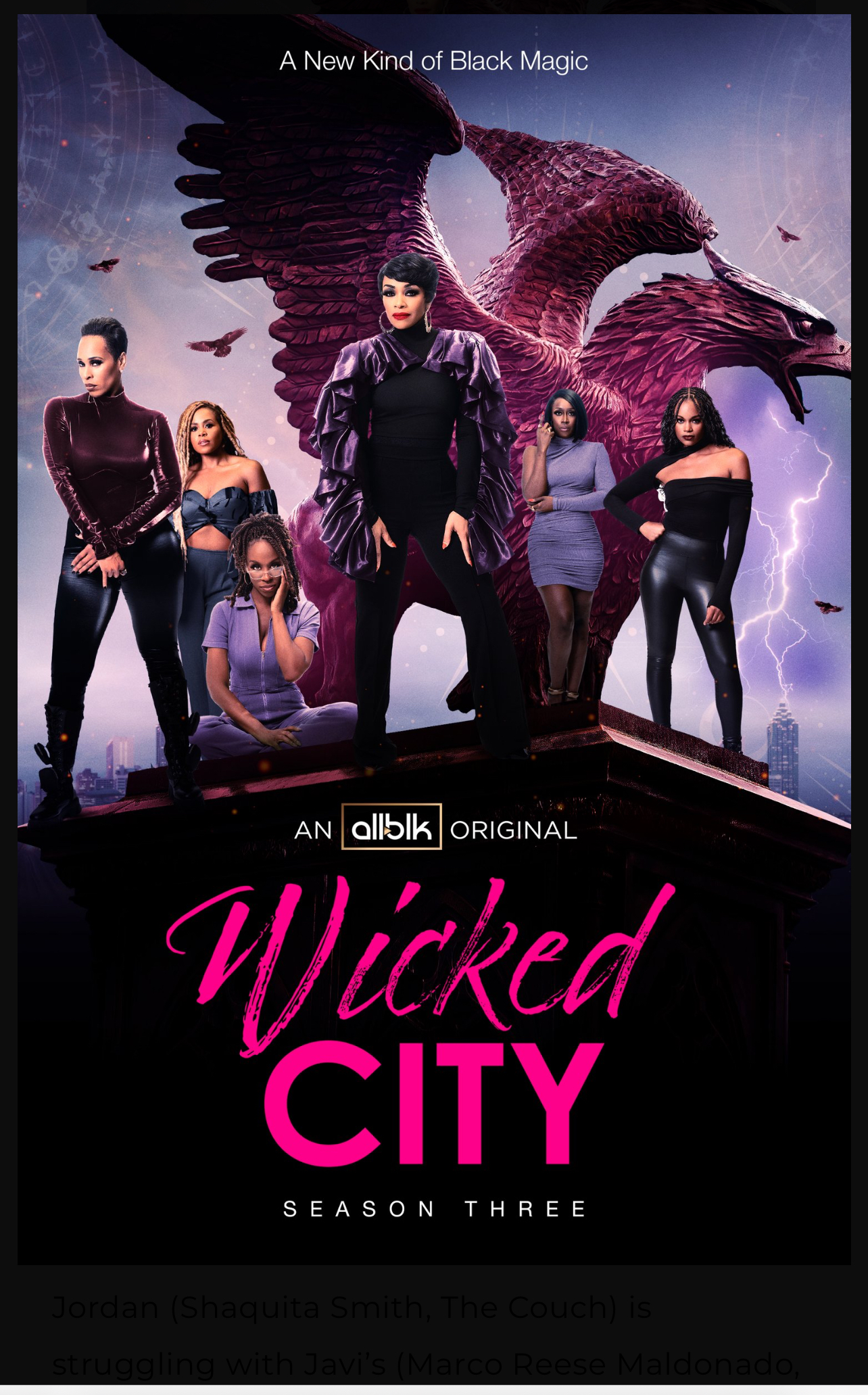 Join Malika Blessing, Rhonda Morman, and the rest of the cast for the thrilling Season 3 of “Wicked City.” (Courtesy Photo)
Join Malika Blessing, Rhonda Morman, and the rest of the cast for the thrilling Season 3 of “Wicked City.” (Courtesy Photo)
